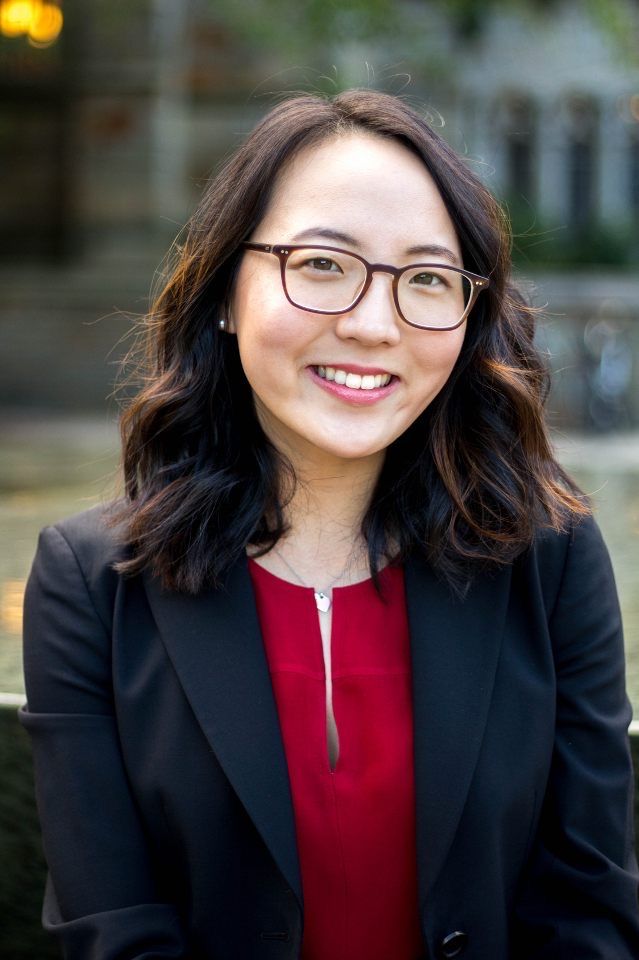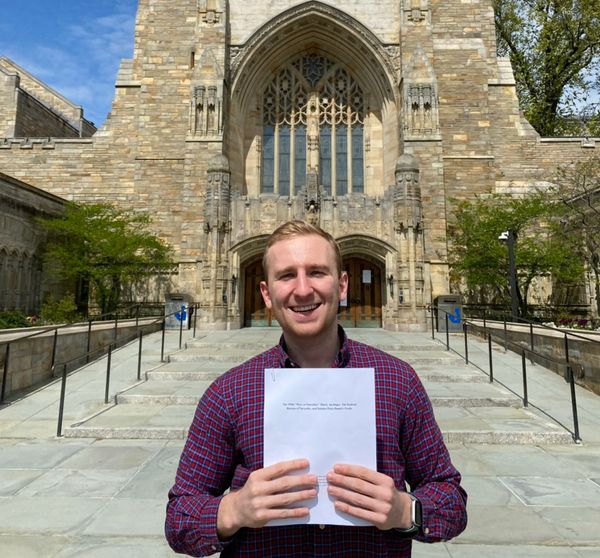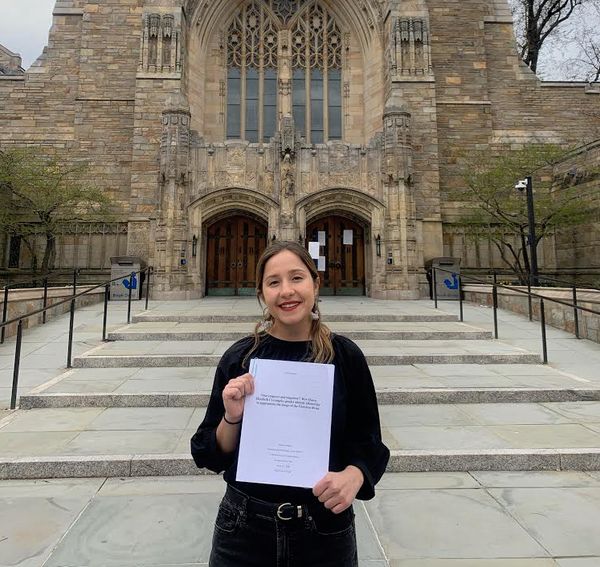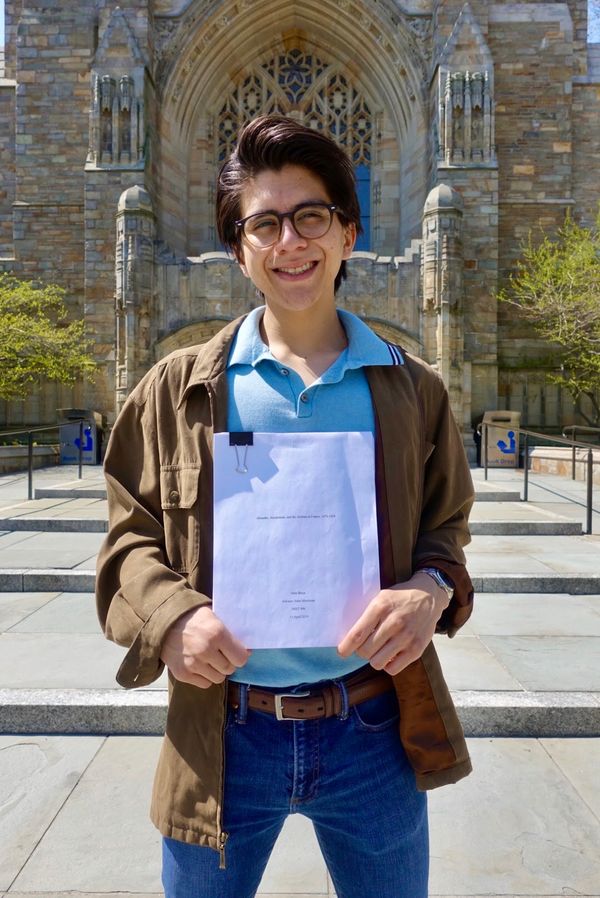Isabella Smeets speaks with Kelsea Jeon, author of "This 'Order' Must Be Annihilated: How Benjamin Austin's Call to Abolish Lawyers Shaped Early Understandings of Access to Justice, 1786-1819.
Isabella Smeets (IS): Kelsea, I was wondering what inspired you to write about Benjamin Austin in the first place.
Kelsea Jeon (KJ): Well, I knew I was interested in access to justice, and I developed this interest based on my experience with a summer internship at the Superior Court in Los Angeles. I took Akhil Amar’s famous constitutional law class and became interested in the judiciary. I wanted to learn more about the courts, but when I actually went to court... I noticed a few unexpected lessons. First, I realized it was very different from what we were reading about in constitutional law. I learned about legal issues that touched on very intimate aspects of people's lives, and I discovered that a lot of people didn't have the resources to have their fair days in court. I learned that there was a phrase for this issue: access to justice. That was how I discovered the modern day issue of access to justice. But, as a historian, I wanted to find out what access to justice was like in the founding period, because that’s the period in American history that for me has always been so interesting. I did keyword searches of “access” and “justice” into primary source databases. Then, one day, I came across this radical argument about abolishing lawyers. The proponent of that argument would later become the focus of my thesis: Benjamin Austin.
IS: I was actually wondering about your ideas about access to justice in particular. In the last sentence of your introduction you write, “Despite claims that the impression that access to justice as access to counsel arose in the nineteenth century through the call for direct access to the law, I argue that Austin espoused these notions as early as 1786.” Did you approach your thesis with this idea in your mind, or did you cultivate this argument throughout your extensive research process?
KJ: I want to say it was a bit of both. I couldn’t control what the sources said because they were written in 1786, but I could control the lens through which I viewed them. And it was when I looked at them with a view towards access to justice that I was able to come to the conclusion that calls for increased access to counsel and access to the law were not novel.
IS: That makes a lot of sense, and Austin is a pretty niche figure. Speaking of that, do you think that US history curricula whether in high school or college, should make a bigger effort to include figures like him? Do you think Austin is relevant to our modern day interpretation of access to justice?
KJ: Well, in general, I don't think a lot of educational institutions discuss access to justice. It's a topic that I think has become increasingly popular among scholars and advocates for legal reform, but I didn't learn about access to justice in college. I didn't learn about it in high school either; I didn't really know much about the civil legal justice system at all. I think that in civics education, before even trying to focus on an individual like Benjamin Austin, we have to talk about this whole side of the justice system that's not really talked about, because it's not as glamorous, or, as some people say, it's not as sexy as criminal justice or criminal law. But, I would say it's just as important, because you're talking about family law, you're talking about housing law: whether or not someone has a roof above their head when they sleep at night. These touch on very intimate aspects of people's lives that I think should be addressed. In terms of whether or not the curricula should focus specifically on individuals like Benjamin Austin, I think if we cover the basics first, talking about the big picture access to justice, the civil legal justice system, then, I think it's wonderful to supplement a lot of the teaching with individual portraits. I took a history seminar with professor Keith Wrightson, who retired last year. The class focused on London from 1560 to 1760; it was social history course. I remember, in the first class he said we can learn about history through places. It was a class that focused specifically on London, so it was a very suitable phrase. But after he said that, I thought that was a really great way of looking at history, but I realized that I’m a firm believer of learning about history through people and people's experiences. I think it’s important to look at history through the lens of individuals when you can.
IS: Definitely. And speaking of the class at Yale, I was wondering how your undergraduate years fueled your love of legal history in particular? Or was it always an interest of yours, even before your time at university?
KJ: I think it developed really organically. When I came into Yale, I thought, like many others, that I was going to be an EP&E major or a political science major. It was actually one conversation I had first year with a classmate, another Jonathan Edwards student, that changed that. We were sitting outside Farnham on Old Campus and he was telling me that he just came from this really awesome talk about history. I think he was telling me because he was also on the fence of figuring out what to major in; I think he was between classics and history. He said, “I think I'm going to do history because with history, you learn a lot of skills from looking at primary sources and crafting original arguments on your own that you may not be able to do as much as the other disciplines.” At least, that was my spin on what he was saying. And I thought, that’s true. I knew I wanted to go into law, and the law is all about looking at a set of facts and creating an argument. So I thought, I can combine these two interests – my interest in the law and in people – by majoring in history. I didn't know too much about legal history, other than the fact that I love the law. When I took constitutional law, I learned that one of the modalities of interpreting the Constitution is by looking at history. Then during my summer internship in Los Angeles Superior Court after my sophomore year, I learned about state constitutionalism, state constitutional law versus federal constitutional law. I knew that I wanted to do an independent study looking at individual rights protections on a state level versus a federal level. I didn't really know how to go about it, and the history department at the time and still now doesn’t really provide many legal history courses at all, actually. So it was my junior year that I was able to do an independent tutorial. There are about two or three professors of law that I know of who have secondary appointments in the Department of History, and I reached out to one of the professors, Professor Parrillo. I told him that I have this idea for this individual study I want to do, and there’s no class offered for it. I asked him to be my advisor, and he agreed. The tutorial was my first real deep dive into legal history, and I think there's no better way that I could have gone about it because he is such a great teacher. I was able to explore questions on my own and really make this study my own. I created my own syllabus; I would read a book every week and we discuss it, looking at the different implications. I think that was probably one of the most intellectually challenging experiences I had, but also one of the most rewarding. That was my own introduction to legal history.
IS: It sounds like your advisor had a significant impact on your thesis. And speaking of your love of legal history and your thesis, does your senior essay lead into your postgraduate work, and if so, how?
KJ: Absolutely. For my thesis I was looking into the roots of access to justice to see if there was an Originalist Argument that can prove that that access to justice was a concern back then. I think my thesis suggests that on a broader level, it was indeed a concern during the nation’s early days. But on a more nuanced level we can also see how this “anti-lawyer” movement also contributed in some ways to the rise of the legal profession. It’s interesting to see how the two [access to justice and the legal profession] are intertwined together, but I think if we look at the basic principles that Benjamin Austin advocated for, as he’s talking about how people should have the right to have lay advocates, people who aren't lawyers, to help represent them in court, and overall how we should have a simpler law that everyone can understand, that appeals to our basic principles today. Those exact things are what's being advocated for in the modern day in terms of civil legal reform. My studies at Oxford are focusing on the potential of nonlawyers to increase access to justice for people who can’t afford representation. By nonlawyers, I mean, quite literally, people who don't have legal degrees, which is sort of something that Austin was talking about when he was saying that we should have these advocates who can help their neighbors with whatever legal disputes they have. For my Masters research I’m going to look into one of the proposals that Austin sort of laid out over 200 years ago and see what the potential these lay advocates have in making the justice system more accessible for unrepresented litigants.
IS: You must be very prepared for your master's this year! Also, speaking of laying groundwork, I was wondering how you went about conducting your research and writing. Did you have a strict process and was your advisor, Nicholas Parrillo helpful in this regard?
KJ: I seriously could not have done my thesis without Professor Parrillo’s supervision and guidance throughout not only my senior year, but also during my independent tutorial with him the spring semester of my junior year. My independent tutorial focused on individual rights protections; the conclusion I came to in that tutorial had to do with the origins of judicial review in state courts, and that was actually the direction I thought that my thesis was going to go in. But after I worked as a Nonlawyer Navigator in New York City the summer before my senior year, I had this change of heart about my thesis topic. I was really nervous telling my advisor about this, as we have been working on a different topic over the past semester, but he was so understanding and supportive. I remember one day when I was thinking about the kinds of sources I would use for my thesis, I had an idea that was really influenced by my London seminar, which I took in the fall semester of my senior year. I thought, what if I looked into court records during this time and tried to paint a picture of what access to justice looks like in the 70s and 80s in Massachusetts. I brought this idea to Professor Parrillo, and he told me that’s a very laudable aspiration, but I’m not sure if those kinds of sources would be easily accessible. And he was right, but that was really the only time I remember him saying no, telling me that he didn’t know if that was the most feasible goal. He said it in a way that was very thoughtful while still being honest. He never made me feel like anything was impossible. He was a great supervisor. He had very good substantive feedback that was super detailed and very responsive. He really helped inspire and challenge my thesis. His comments helped me see things that I wouldn’t have otherwise seen on my own. One of the first pieces of advice he gave me, and continued to give me, was to make sure I looked into every secondary source, even if it means doing another week or another month of mining sources. And in terms of having robust, strong, and credible research that was such great advice. Even though it was challenging and seemingly overwhelming at times (you find one source and it takes you down a rabbit hole of literature you didn’t even know existed!), I am grateful that I spent the time that I did in doing my due diligence.
IS: You speak so fondly of your professor and also your tutorial in junior year, and I know this isn't a requirement for history majors at Yale. Do you think that history majors should take a tutorial as you seem to credit it to a lot of the inspiration for your thesis topic?
KJ: Yeah, it's definitely not a common thing. I only did it because I just didn't think that there was a course that adequately would have allowed me to explore the questions that I was really interested in. I think it varies on an individual basis. If there’s a course that suits or matches with your interests and would allow you to explore those questions, then I don’t think it would be as necessary. But regardless, I think it’s really helpful in terms of giving you a taste of what independent research for your thesis is supposed to be like. Actually, the independent tutorial almost did not come to fruition. It was really hard for me to find an advisor who was in the department and willing to take on another student to meet with individually. It’s a big commitment for not only the student, but also the advisor. And the time, some advisors were even advising me against doing the independent tutorial. They were saying that they didn’t think I was ready and that perhaps I could explore my questions in seminars. When I heard that from some of my professors, I felt very discouraged because I had this idea for research that I thought was really important. I decided to follow my instinct and to go ahead with my plan to do the tutorial, I continued looking for an advisor, and then I came across Professor Parrillo. But the process of being advised against doing something by someone you respect and going ahead and doing it anyways was a really important lesson for me. It’s important to take everyone’s opinion, even senior advisors, with a grain of salt because ultimately you are the researcher. This is your intellectual experience, and you know what’s best for you. If you can find a way to make the research work, then I think you should do it.
IS: You've already imparted a lot of it, but I was wondering if you had any advice for younger students at Yale who know they want to be history majors.
KJ: Go into everything with an open mind. I came into college thinking I knew a lot, but soon realizing how little I knew. I didn’t know that I would major in history, that I would focus on the early America period, or that I would like legal history. But I always had questions during and after every history or political science class, and I think it was me asking those questions and looking for answers that led me to the path that I ultimately took and am taking right now. So, I guess my advice is to follow your curiosities. My first history class was a freshman seminar called the Significance of American Slavery with Edward Rugemer. That class was my first exposure to archival research and also the class that made me want to be a history major. It was an amazing experience. We would have class twice a week, and every week we would look at a new primary source in the Beinecke Library, I thought, this is so awesome, we are literally looking at journals from the 1700s and 1800s. For that class the final paper was a research paper, and I examined the writings of the Dutton family, a New Haven clergy family from the 1800s, to explore how abolitionism affected the religious community right here in New Haven. I think that course is what got me interested in history. I had so many questions and takeaways from that course. Having more and more questions and following those interests is what led me to the path that I’m taking. Also, one last thing: in terms of thinking about what kinds of questions to ask, I have found that my approach has been guided by what I think would be relevant to the average person. When I was writing my thesis I was constantly thinking that I don’t want this to be something that is only of interest to academics, people in “ivory towers,” but something ordinary people can learn something from. I think that’s important too, and that has always guided me in the direction in which I want to take my research, and I hope it guides yours, too.





